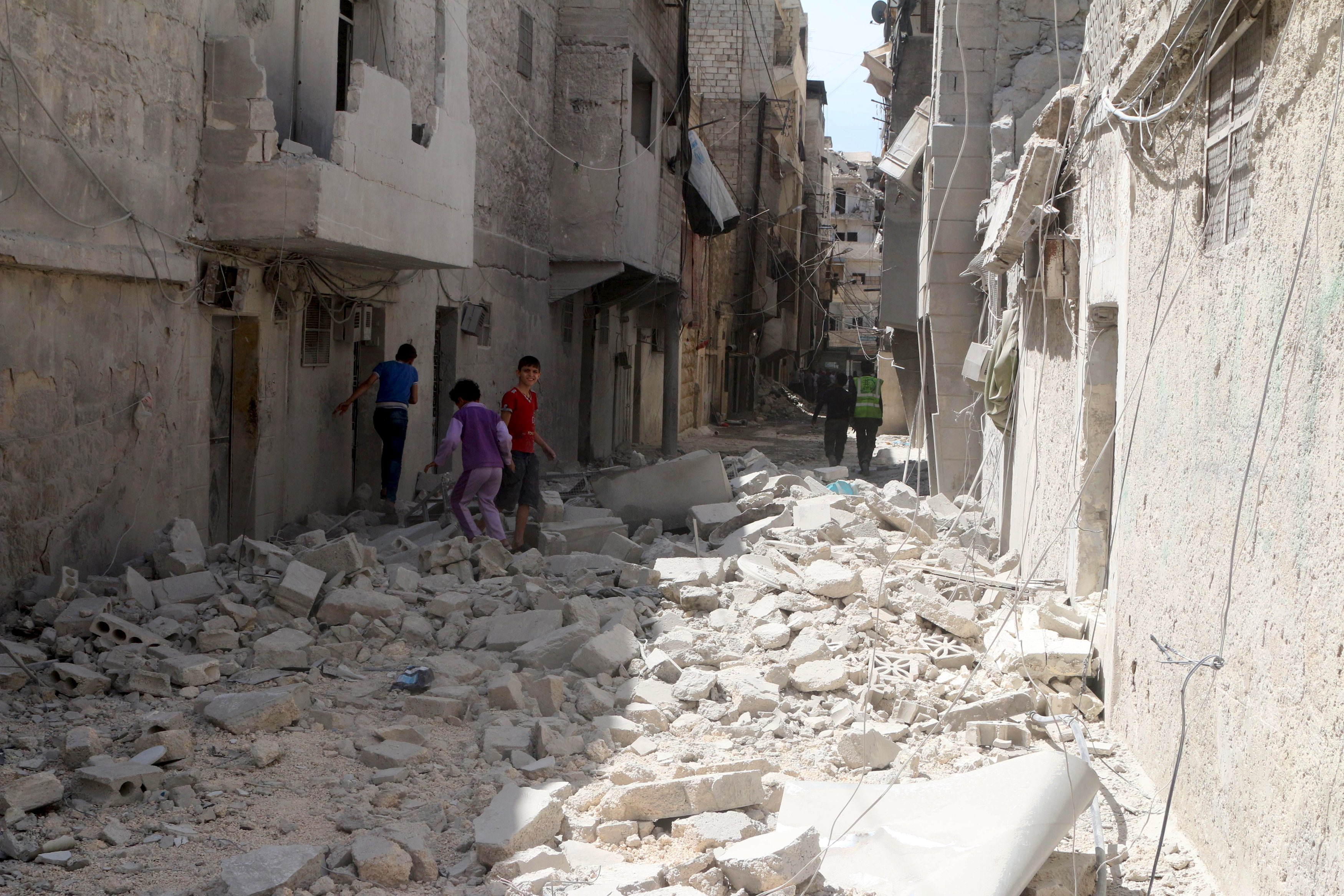
President Barack Obama is to assemble his top national security officials at the CIA to discuss options to increase pressure on the IS in Syria. With each additional step, he risks drawing the US further into the conflict he has spent five years trying to avoid.
The meeting of the National Security Council Principals Committee brings together some of the president’s top cabinet members, most of whom have been pressing Obama to allow them to do more to fight the IS in Syria. According to some reports, Secretary of State John Kerry had pestered the president so many times to ramp up the military mission that the president stipulated that only the secretary of defence could bring him military proposals.
One of those proposals on the table now is to add 250 more special operations troops in Syria, a plan that Defence Secretary Ashton Carter supports, two administration officials told me. Another is to ask the president to authorizs the military to directly train the Syrian Democratic Forces, a coalition of mostly Kurdish groups fighting against the IS in Syria’s northeast.
“We’ve got to get these guys beaten and as soon as possible,” Carter said last week. “We’re looking for opportunities to do more.”
Inside the administration, two camps have contradictory views of how to fight the IS in Syria. One group wants to drastically increase the training and arming of the Kurds, who some see as the most effective force against the IS. This camp -- including some top Pentagon officials, leaders of the Joint Special Operations Command, and Brett McGurk, the president’s special envoy to the global coalition against the IS -- is skeptical of the moderate rebel groups and dismissive of Turkey’s concerns about Kurdish territorial expansion.
In the other camp are officials who want to increase support to the moderate rebel groups that are not affiliated with the IS or the Al Nusra Front. These officials argue that only these armed groups can drive out the IS and then hold those areas to keep the terrorists out. This camp's big names come from the US Embassy in Ankara, the European affairs bureau at the State Department (which covers Turkey) and the CIA, which has been working to arm and train these groups for years.
The latter group has been bolstered in recent weeks by new cooperation with the Turkish government to help moderate rebel groups take territory in northern Syria, both near Aleppo and along the Syria-Turkey border. The Turkish and American militaries have been coordinating strikes for the first time to support these rebel groups. Now the moderate rebels control a large stretch of what’s known as the Manbij Pocket, a crucial patch of land now infested with IS fighters.
The Kurds are also trying to move into that very area in an attempt to connect their eastern and western zones of control. If they succeed, Kurdish control would extend from the Lebanese border to the Iraq-Iran border, solidifying a de facto Kurdish state that Turkey is determined to prevent.
At Wednesday’s meeting, top officials will attempt to reconcile American support for these groups that have contradictory aims.
On Capitol Hill, lawmakers in both parties complain that the US is becoming steadily more involved in Syria, without any clear plan for how US forces and resources will be able to destroy the IS.
Democratic Senator Chris Murphy told me on Tuesday that he doesn’t support any increased deployment of US special forces in Syria or any more arming or training of local forces in Syria.
“There’s not much about our prior training and equip missions that are an advertisement for its future success,” he said. “You can draw up all sorts of plans of how you can influence the battle space on the ground, but very few of them have proven true thus far.”
Murphy has long been a skeptic of increased US military involvement in the Middle East and argues that the US should recognise the limits of American power and therefore resist using military solutions in complex conflicts that develop largely outside of US control. He shares that view with President Obama, who speaks often about the trap that slow escalation of US military commitment can present for policymakers.
But even those lawmakers who favour military intervention in Syria are skeptical that the president’s consideration of more options to fight the IS this week will yield positive results on the ground. Senate Armed Services Chairman John McCain told me Tuesday that Obama’s “incrementalism” in Syria was problematic.
I asked McCain whether he supports deploying more special operations forces in Syria and increasing training and arming of the Kurds there. He said focusing on the tactics misses the point.
“It’s not that I support them or not, but it is mission creep without a strategy, so it’s not likely to succeed,” he said. “They have to tell us what they are doing, how many people there are, what their plans are, and hopefully outline a strategy which as of now they do not have.”
The administration’s publicly stated strategy is to deprive the IS of territory, money, troops and support, while working with major world powers to find a political solution to the Syrian crisis that would then enable all actors to focus on the fight against the terrorists.
Syrian peace talks in Geneva do provide some breathing room for the US and its allies to pursue that gradual strategy, and to consider other approaches. If those talks collapse, along with the current cease-fire, that breathing room will disappear, and Obama will be expected to have a plan -- not just to ramp up the tactics that have made only modest progress thus far. - Bloomberg View